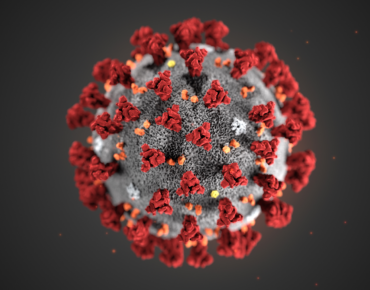Crowdsourcing at Massive Scale Takes on COVID-19

For gamers, fighting against a global crisis is usually pure fantasy seen in a console – but now, it’s looking more like a reality. As supercomputers around the world spin up to combat the coronavirus pandemic, the crowdsourced distributed computing platform Folding@home is setting its sights on coronavirus research, spurring a global movement to commit powerful home computers and gaming consoles to the cause.
Folding@home, created by the Pande lab at Stanford University, offers a piece of software that runs in the background on personal computers, gaming consoles and even some phones. When researchers at the Pande lab need distributed computing resources for protein folding (hence the name), drug development or other types of molecular dynamics, the process spins up across Folding@home’s network of volunteered machines.
Users are able to select whether their machines can be leveraged at all times, or only when idle; cap the computational intensity of the process; and even compete with each other and join teams to encourage participation (although some of these features are now inaccessible due to overwhelming load on the Folding@home website). By its own metric – an internal measurement of how long its tasks take to complete – Folding@home reports an aggregate performance of nearly 100 petaflops generated by more than 100,000 volunteer systems, although those numbers have almost certainly increased over the past week.
 This power has been leveraged for everything from Alzheimer’s research to breast cancer research – and the Pande lab has firmly set its sights on the coronavirus. In late February, Greg Bowman, assistant professor of biochemistry and molecular biophysics at the Washington University School of Medicine and director of Folding@home, issued a call to action on the site.
This power has been leveraged for everything from Alzheimer’s research to breast cancer research – and the Pande lab has firmly set its sights on the coronavirus. In late February, Greg Bowman, assistant professor of biochemistry and molecular biophysics at the Washington University School of Medicine and director of Folding@home, issued a call to action on the site.
“We need your help!” he wrote. “Folding@home is joining researchers around the world working to better understand the 2019 Coronavirus (2019-nCoV) to accelerate the open science effort to develop new life-saving therapies.”
Bowman committed Folding@home to supporting the development of a therapeutic antibody that could help to prevent the virus from infecting lung cells. Such an antibody had already been developed for SARS-CoV – a similar virus – but more research was needed to understand the structure and behavior of COVID-19’s viral proteins (such as the “spike” protein that Summit, the world’s fastest publicly ranked supercomputer, is currently crunching away at).
“To help tackle coronavirus, we want to understand how these viral proteins work and how we can design therapeutics to stop them,” Bowman wrote in an update yesterday. “Our specialty is in using computer simulations to understand proteins’ moving parts. Watching how the atoms in a protein move relative to one another is important because it captures valuable information that is inaccessible by any other means.”
“For example, in our recent paper, we simulated a protein from Ebola virus that is typically considered ‘undruggable’ because the snapshots from experiments don’t have obvious druggable sites,” he continued. “But, our simulations uncovered an alternative structure that does have a druggable site. Importantly, we then performed experiments that confirmed our computational prediction, and are now searching for drugs that bind this newly discovered binding site.”
“We want to do the same thing with coronavirus, and you can help!” Bowman concluded. Nvidia issued a similar call: “PC Gamers, let’s put those GPUs to work. Join us ... in supporting folding@home and donating unused GPU computing power to fight against COVID-19!”
To run Folding@home yourself, follow this link, install the software, and when selecting how to target your computational contribution, choose “Any Disease.”











